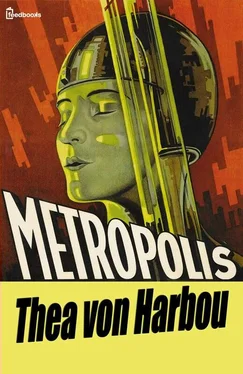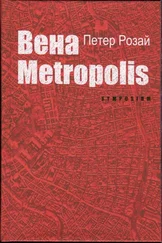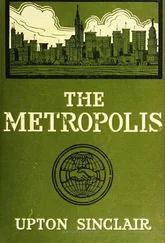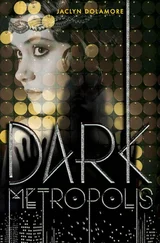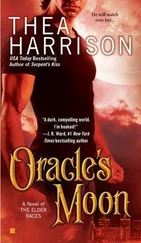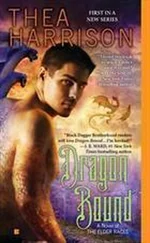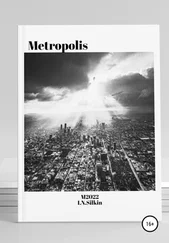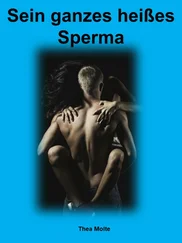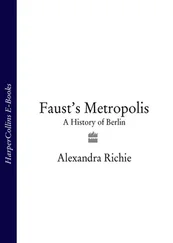There — a light in front of her! She ran towards it. An arched vault… Great burning candles… Yes, she knew the place. She had often stood here and spoken to those whom she called "brothers."… Who, but she, had the right to light these candles? For whom had they burnt today? The flames blew sideways in a violent draught of air; the wax dropped.
Maria seized a candle and ran on with it. She came to the background of the arched vault. A coat lay on the floor. None of her brothers wore such a coat over his blue linen uniform. She bent down. She saw, in the thousand-year-old dust of the arched vault, a trail of dark drops. She stretched out her hand and touched one of the drops. The tip of her finger was dyed red. She straightened herself up and closed her eyes. She staggered a little and a smile passed over her face as though she hoped she were dreaming.
"Dear God, I pray Thee, bide with me, take care of me… Amen… "
She leant her head against the stone wall. The wall quaked. Maria looked right up. In the dark, black vaulting of the stone roof above her, there gaped a winding cleft.
What did that mean…?
What was there — above her?
Up there were the mole-tunnels of the underground railway. What was happening up there—? It sounded as though three thousand giants were playing nine-pins with iron mountains, throwing them, one against the other, amid yells…
The cleft gaped wider. The air was filled with dust. But it was not dust. It was ground stone.
The structure of the City of the Dead quaked right down to the centre of the earth. It was as if a mighty fist had suddenly opened a sluice — but, instead of water, a maelstrom of stones hurtled from the dammed-up bed — blocks, mortar, crumbles, stone-splinters, ruins poured down from the arch — a curtain of stones — a hail of stones. And above the falling and the smashing was the power of a thunder which was roaring, and roaring long and resonantly, through the destruction.
A current of air, an irresistible whirl, swept the girl aside like a blade of straw. The skeletons rose up from the niches: bones rose up erect and skulls rolled! Doomsday seemed to be breaking over the thousand-year-old City of the Dead.
But above the great Metropolis the monster-voice was still howling and howling.
Red lay the morning above the stone ocean of the city. The red morning saw, amidst the stone ocean of the city, rolling along, a broad, an endless stream.
The stream was twelve files deep. They walked in even step. Men, men, men, all in the same uniform; from throat to ankle in the dark blue linen, bare feet in the same hard shoes, hair tightly pressed down by the same black caps.
And they all had the same faces. Wild faces, with eyes like fire-brands. And they all sang the same song — song without melody, but an oath — a storm vow:
"We've passed sentence upon the machines!"
"We have condemned the machines to death."
"The machines must die, to hell with them!"
"Death! — Death! — Death to the machines—!"
The girl danced along before the streaming, bawling multitude.
She led the multitude on. She led the tramping multitude forward against the heart of the Machine city of Metropolis.
She said: "Come…! Come…! Come…! I will lead you… II will dance the dance of Death before you… I will dance the dance of the murderers before you…!"
"Destroy — destroy — destroy—!" yelled the crowd.
They acted without plan, and yet following a law. Destruction was the name of the law; they obeyed it.
The multitude divided. A broad stream poured itself, frothing, down into the tunnel of the underground railway.
The trains were standing ready on all the tracks. Searchlights wedged themselves into the darkness which crouched in the shafts, above the rails.
The multitude yelled. Here was a plaything for giants! Were they not as strong as three thousand giants? They dragged the drivers from the drivers' places. They released the trains and let them run — one after the-other — forward-forwards!
The rails rumbled. The thundering carriage snakes, glitteringly lighted, hurled along by their emptiness, dashed into the brownish darkness. Two, three, four of the drivers fought like men possessed. But the mob sucked them up. "Will you shut your mouths, you dogs—? We are the masters! We want to play! We want to play like giants!"
They howled the song — the song of their deadly hatred:
"We've passed sentence upon the machines!"
"We have condemned the machines to death!"
They counted the seconds:
"Fifty-nine — sixty — sixty-one — sixty-two — now—!—mdash;—Somewhere in the depths of the tunnel, a crash, as if the globe were splitting… Once — and once again… The mob howled:"
"The machines must die — to hell with them!"
"Death! — Death! — Death to the machines!"
Then—! What happened then? — Then!!-From one of the tunnels there broke forth a train, like a steed of fire, with sparkling lights, driverless, at a tearing speed — galloping death.
From whence did this hell-horse come? — Where were the giants, who were thus giving answer to the giants' game of the mob? The train vanished, amid shrieks — and, some seconds later, came the tearing crash from the depths of the pit. And the second train was crashing onwards, sent off by unknown hands.
The stones shook loose under the feet of the mob. Smoke gushed up from the pit. Suddenly the lights went out. Only the clocks, the whitish-shimmering clocks, hung, as patches of light, in a darkness which was filled with long, dim, drifting clouds.
The mob pressed towards the stairs and up them. Behind them, unchained demons, pulling their reeling carriages along behind them, the engines, now released, hurled themselves on, to fall upon each other and break into flames…
Metropolis had a brain.
Metropolis had a heart.
The heart of the machine city of Metropolis dwelt in a white, cathedral — Like building. The heart of the machine city of Metropolis was guarded by one single man.
The man's name was Grot, and he loved his machine.
The machine was a universe to itself. Above the deep mysteries of its delicate joints, like the sun's disc, like the halo of a divine being, stood the silver spinning wheel, the spokes of which appeared, in the whirl of revolution, as a single gleaming disc. This disc filled out the back wall of the building, with its entire breadth and height.
No machine in all Metropolis which did not receive its power from this heart.
One single lever controlled this marvel of steel. All the treasures of the world heaped up before him would not, for Grot, have outweighed this, his machine.
When, at the grey hour of dawn, Grot heard the voice of the great Metropolis roaring, he glanced at the clock on the brow of the wall where was the door, and thought: "That's against all nature and regularity… "
When, at the red hour of sunrise, Grot saw the stream of the multitude rolling along, twelve files deep, led by a girl-dancing to the rhythm of the yelling mob, Grot set the lever of the machine to "Safety," carefully closed the door of the building and waited.
The mob thundered against his door.
"Oh — knock away!" thought Grot. "That door can stand a good bit… "
He looked at the machine. The wheel was spinning slowly. The beautiful spokes were playing, plainly to be seen. Grot nodded to his beautiful machine.
"They will not trouble us long," thought he. He waited for a signal from the New Tower of Babel. For a word from Joh Fredersen. The word did not come.
"He knows," thought Grot, "that he can rely on me… "
The door quaked like a giant drum. The mob hurled itself, a living battering ram, against it.
"There are rather a lot of them, it seems to me," thought Grot. He looked at the door, it trembled, but it held. And it looked as though it would still hold for a long time.
Читать дальше
